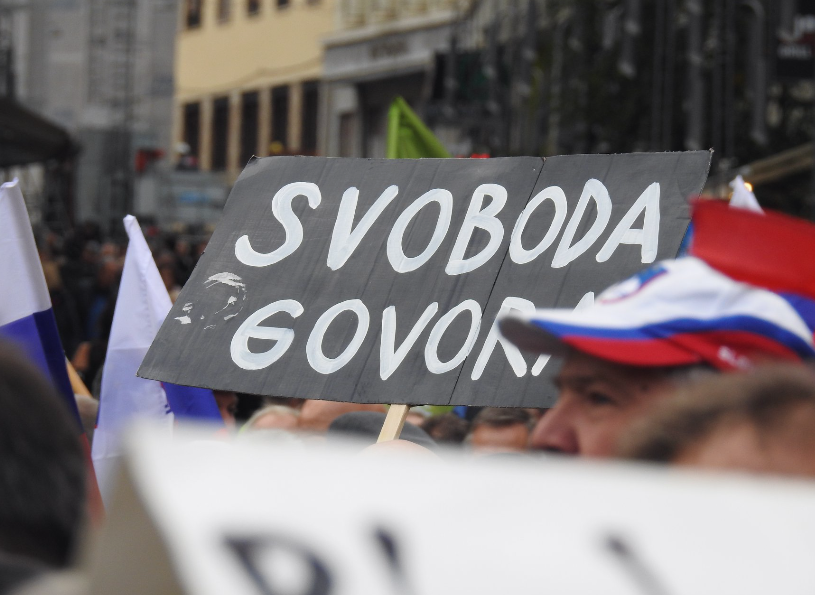The Council for the Protection of Freedom of Speech (Svet za zaščito svobode govora), established within the Assembly for the Republic (Zbor za republiko – Zzr), has set itself the task of working to ensure that everyone can publicly express their opinions, views and ideas in line with their worldview, without fear of being persecuted by the authorities for what they say. But unfortunately, they say, the reality in Slovenia at the moment is quite the opposite.
“Every day, more or less publicly exposed individuals face media pogroms and government threats, which sometimes turn into criminal prosecutions, because of their words, spoken or written. The young country is thus turning into a swamp, where only one worldview is allowed, where only official interpretations of things and events coming from “ivory towers” are allowed; any deviation from this can be immediately labelled “hate speech”,” wrote the President of the Council for the Protection of Freedom of Speech, Jože Biščak, in a press release.
In Slovenia, the Constitution of the Republic of Slovenia protects the individual against abuses by the rulers of the day. Unfortunately, Article 39 of the Constitution, which guarantees the individual without a shadow of a doubt the freedom of “ expression of thought, freedom of speech and public appearance, freedom of the press, and other forms of public communication and expression,” is no longer respected, or the interpretation of the Constitution is being adapted to a legal and legislative innovation based on “victimisation”, i.e., the prior granting of victim status to certain groups of people in order to protect them from any criticism and expression of negative opinions about their actions. This is not only a threat to freedom of speech, but to freedom in general, the Council for the Protection of Freedom of Speech said in a press release.
“The Council has therefore received with concern the news that the Ministry of Culture of the Republic of Slovenia has put the new Mass Media Act (ZMed-1) up for public consultation. Instead of limiting the powers of the state in the field of media, the law increases the possibility for the state to influence the publishing and operation of the media.”
The media is undoubtedly one of the cornerstones of government control and freedom of speech. By definition, they defend freedom of expression and disseminate ideas that the rulers do not like. The new legislation further regulates and restricts the free functioning of the media. What is particularly scary is the proposed Article 34 of the law in question, which gives a state official (the media inspector) the power to order a media outlet to remove content it finds objectionable within 24 hours, according to the Council. “This is not only an interference with freedom of speech and editorial discretion, but also with the constitutionally protected right to freely use private property. The Council will examine the proposed law in detail, but it is already clear that this law is allowing the state to be authoritative in ways that are typical of totalitarian countries. In free and democratic societies, the state or any government of the Republic of Slovenia would not have the right to prevent or restrict freedom of expression, and in particular not to interfere in the functioning of the media.”
In 2024, the Council will continue its main objective – to ensure that everyone can express and make their views and opinions known.
Sara Kovač


